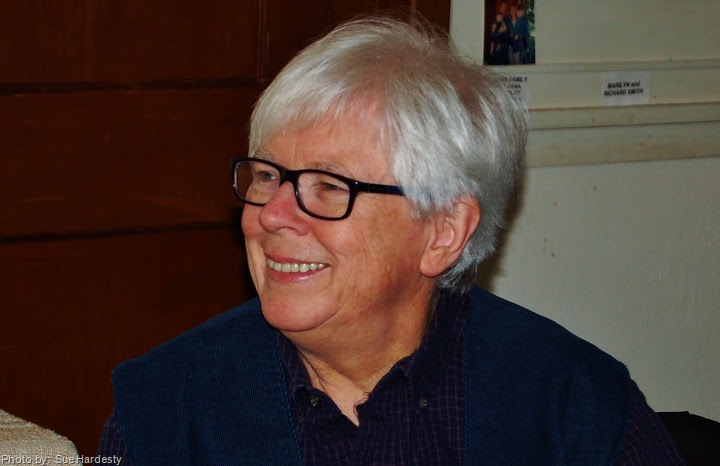 American Queer, a collection of “The Amazon Trail” columns, was presented with the 2015 Golden Crown Literary Society Award in Anthology/Collection Creative Non Fiction. This, and her award-winning fiction, including The Raid, The Swashbuckler, and Beggar of Love, can be found at:
American Queer, a collection of “The Amazon Trail” columns, was presented with the 2015 Golden Crown Literary Society Award in Anthology/Collection Creative Non Fiction. This, and her award-winning fiction, including The Raid, The Swashbuckler, and Beggar of Love, can be found at:
www.boldstrokesbooks.com/Author-Lee-Lynch.html.
One reason I’ve been writing all these years has to do with helping us feel good about ourselves. I’d like to think the cultural work that’s proliferated from the latter half of the twentieth century through today has contributed to building our strength so we could accomplish all we have. If the pendulum of history swings against us like a wrecking ball from the future, we’ll need the writing, the photographs, the women’s music—to stay strong, to be queer strong, just as we need it now.
But will our stories be available twenty, fifty, a hundred years from now? I believe they should be, but hadn’t thought much about it until a discussion I had with K.G. McGregor, popular author and President, Board of Trustees, Lambda Literary Foundation. And then I thought, yeah, of course we should do some planning for a far away day when, who knows, we may be outlawed again.
McGregor pointed out that our book rights would disappear into the ether (not the ethernet) unless we plan now to conserve them. We all need literary (or artistic, etc.) executors devoted to our queer arts, who will ensure that our heritage is sustained. But we need to do something besides name executors in our wills. What instructions should I give the women to whom I’ve entrusted my life’s work?
Is it possible for our art to have meaning decades from today? Even now, well before they come out, kids are learning skills like coding. They play Blockly games and CodeCombat. They don’t turn pages, they swipe while reading. Their earbuds pipe in stories read by professionals and enhanced with music. If there’s something they don’t know, they say, “OK, Google,” and Google gives them their choice of thousands of answers. Their brains will be wired very differently from ours.
Meanwhile, back on planet early 21st century, we writers are working our buns off to create a gay literature. Will it have any relevance at all to eventual readers? What can we do to make it relevant? The same goes for art, drama, music. Will hip hop resonate with kids who generate music—lyrics, melodies, voices, instruments— electronically? What will happen to tactile sculpture when an artist can create using a 3D printer?
Is it even our responsibility to write for the readers of 2035? Did Thomas Hardy or Jane Austen worry about such things? I worry plugged in people may lose touch with, say, the romance of a romance novel. Will they care if the butler did it or the spy comes in from the cold? As a general fiction writer whose heart is invested in portraying realistic lesbians and gay men, who am I speaking to in the future other than herstorians?
I don’t have the answers. Lambda, for one, is working on our legacy. The rest of us, our gay attorneys, librarians, archivists, readers, historians, and organizations will have ideas. There are gay archives all over the world. Are they equipped to do anything other than collect and make available what’s already out there? My papers to date are at a university, but there’s no money to catalogue or organize them. The library depends on volunteers to do the work. Money is going to be essential to house, feed and defend the heritage we leave.
Meanwhile, in Washington, who knows what the power struggles may do to erode all the progress we’ve seen. I have been saddled with the temperament of a pessimist and see shadows of ISIS in our right wing fundamentalists. The U.S. hasn’t been able to solve the dire problems of racism and economic inequality. The House majority leader has been toppled from office by right wing fundamentalists and his probable successor has withdrawn for reasons I fear to consider. What will the Supreme Court look like if the Tea Party of 2015 has its way?
While the artists paint, the poets rhyme, the actors bring alive plays to tell our stories, all of us need to consider how we will bridge to our queer heirs. Can we pass down the tradition of mentoring new talent as the Golden Crown Literary Society is doing? Can we encourage little coders to create programs capable of securely capturing their legacy before the kids are even conscious of its importance to their freedom? It’s a legacy we may have created for ourselves, but it would behoove us to pass it on.
